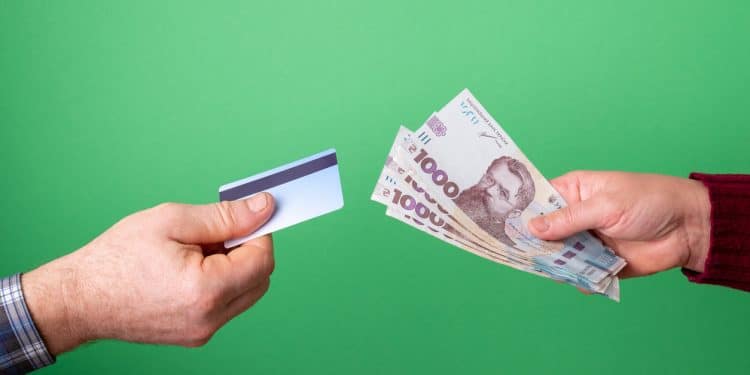You’re at the checkout, wallet in hand. Do you tap your card or pull out cash? It might seem like a small decision, but how you pay can actually impact your spending habits—and your savings. Some people swear by cash-only budgeting, claiming it helps them spend less and stay on track.
Others argue that using a card makes life easier and even earns you rewards. So, when it comes to saving money, which is better—cash or card? Let’s break down the pros and cons of each, explore the psychology behind spending, and help you decide which method works best for you.
The Psychology of Spending: Why It Matters
Before we compare cash or card, let’s talk about how your brain reacts to spending money—because the way you pay doesn’t just affect your bank account, it affects your decision-making too.
Cash Feels More “Real”
When you hand over a €50 bill, you physically feel the transaction happening. You see your wallet get thinner, and you instantly register how much money you have left. This creates what psychologists call the pain of paying—the discomfort that comes with parting ways with your hard-earned cash.
Because of this, studies have shown that people spend less when they use cash. The mental friction of handing over bills makes you more aware of how much you’re spending, forcing you to pause and consider whether the purchase is really worth it.
Cash also makes budgeting more tangible. If you allocate €100 for groceries and only bring that amount in cash, you’re forced to stick to the limit—there’s no option to overspend unless you physically go back and get more money. That level of restriction can be incredibly effective for people who struggle with impulse spending.
Cards Reduce the Pain of Spending
Now, compare that to using a debit or credit card. When you swipe, tap, or insert a card, the transaction happens instantly and without friction. There’s no cash leaving your hands, no visible decrease in your wallet, and—most importantly—no immediate emotional response.
Psychologists have found that paying with a card feels less painful because it’s a detached process. You don’t actually see the money disappearing, so you’re less likely to think about the real cost of what you’re buying. This is why many people overspend when using a card—it doesn’t trigger the same mental checks that cash does.
Retailers and financial institutions understand this psychology and take full advantage of it. That’s why stores encourage you to use contactless payment, online retailers save your card details for “one-click purchases,” and credit cards offer high spending limits—the easier it is to pay, the more likely you are to spend more than planned.

Cash or Card: A Breakdown
1. Controlling Your Spending – cash or card?
When it comes to keeping spending under control, cash has a natural advantage. Since you can only spend what you physically have in your wallet, it creates a built-in limit that prevents overspending. If you budget €200 for a night out and only bring that in cash, you’re forced to stick to your limit. There’s no option to swipe for just a little extra.
Cards, on the other hand, remove that spending barrier. Since you’re not limited by physical cash, it’s easier to rationalize extra purchases. That quick coffee, a last-minute online deal, or an unplanned dinner out—none of these feel like a big deal when you’re using a card, but they add up fast. Credit cards take this even further by allowing you to spend money you don’t actually have, leading to potential debt.
💡 Winner: Cash – Cash forces discipline and naturally limits spending, making it the better option for controlling expenses.💡 Winner: Cash – The “cash envelope” method helps prevent impulse spending.
2. Tracking Expenses – cash or card?
Keeping track of spending is easier with a card because every transaction is automatically recorded. You can check your bank statement, use budgeting apps, or get monthly summaries from your credit card provider. This allows you to see exactly where your money is going without having to manually track every purchase.
With cash, tracking expenses requires extra effort. Unless you make a habit of writing down every purchase or saving receipts, it’s easy to forget where your money went. If you withdraw €100 from the ATM, by the end of the week, you might be left wondering, “Where did it all go?”
💡 Winner: Card – The automatic record-keeping of card transactions makes it easier to track spending and manage a budget effectively.
3. Rewards and Perks – cash or card?
One major advantage of using a card is the rewards system. Many credit cards offer cashback, airline miles, or points that can be redeemed for discounts and travel perks. If you’re paying for essential expenses—like groceries or utilities—with a rewards card, you can actually save money in the long run.
Cash, unfortunately, offers no additional benefits beyond the spending control it provides. You don’t earn any rewards, and there are no perks for using it. However, if you aren’t paying off your credit card in full every month, any rewards you earn can be wiped out by interest charges, making the benefits useless.
💡 Winner: Card – If used responsibly, credit cards can provide significant perks like cashback and travel rewards that cash simply doesn’t offer.
4. Security and Fraud Protection – cash or card?
Losing cash is final—once it’s gone, it’s gone. If your wallet is stolen or misplaced, there’s no way to recover the money. This makes cash riskier in terms of security.
Cards, however, come with built-in fraud protection. If your card is stolen, you can freeze it instantly, dispute unauthorized transactions, and even get a refund for fraudulent charges. Banks and credit card companies also monitor spending for suspicious activity, adding an extra layer of security that cash doesn’t provide.
💡 Winner: Card – For security reasons alone, cards are the safer option, offering fraud protection and the ability to recover lost funds
5. Budgeting for Savings – cash or card?
Cash is an excellent budgeting tool because it physically limits how much you can spend. This is why many financial experts recommend the cash envelope system, where you divide your money into different envelopes for groceries, dining out, and entertainment. Once the envelope is empty, you can’t spend any more in that category until next month. This forces intentional spending.
Cards, on the other hand, offer automation, which can be helpful for saving. You can set up automatic transfers to your savings account, round up transactions to the nearest euro, or use budgeting apps that categorize your spending. However, because cards make spending so easy, some people find it harder to stick to their budget when using a card instead of cash.
💡 Winner: It depends – If you prefer strict budgeting, cash wins; if you like automated savings, a card is better.
So, Which One Actually Helps You Save More?
At this point, you might be wondering: “Cash or card—which one actually makes me save more?” The truth is, it depends on your habits.
Use Cash If:
✅ You struggle with impulse spending and need strict limits.
✅ You want to physically see your money leaving to make smarter choices.
✅ You’re using the envelope method or a cash-based budgeting system.
Use a Card If:
✅ You’re disciplined and track your spending with budgeting apps.
✅ You want to earn cashback or rewards while still controlling expenses.
✅ You always pay off your full balance to avoid debt.
If you overspend with a card, switching to cash for daily purchases might help you cut back. If you’re good at tracking expenses, a card might be more rewarding.
How to Get the Best of Both Worlds
Still undecided between cash or card? You don’t have to pick just one—here’s how to combine both for maximum savings:
- Use Cash for Discretionary Spending – Set a weekly cash budget for dining out, entertainment, and shopping. Once it’s gone, you stop spending.
- Use a Card for Fixed Bills & Online Payments – Pay for rent, utilities, subscriptions, and online purchases with a card to track expenses and earn rewards.
- Automate Savings with Your Card – Set up auto-transfers to savings so you’re always putting money aside.
By using cash or card strategically, you can control your spending while still earning perks.
So, what’s better for saving—cash or card? It comes down to how you manage your money.
- If you struggle with overspending, using cash helps you stay disciplined.
- If you budget well and take advantage of rewards, a card can be more beneficial.
- The best approach? A mix of both—cash for control, card for convenience.
Now it’s your turn: Try using cash for a week and see if you spend less. Or, challenge yourself to track every card transaction and compare. You might be surprised at which method actually helps you save more!
